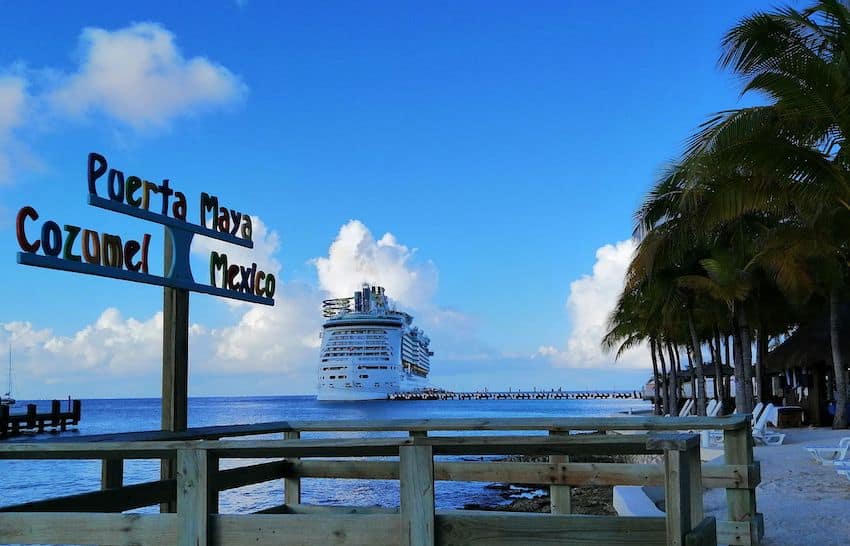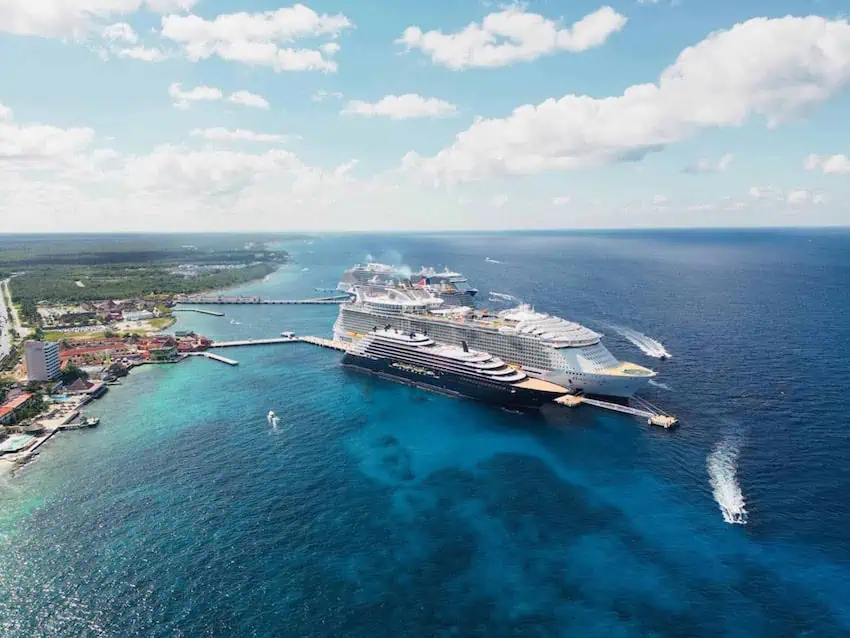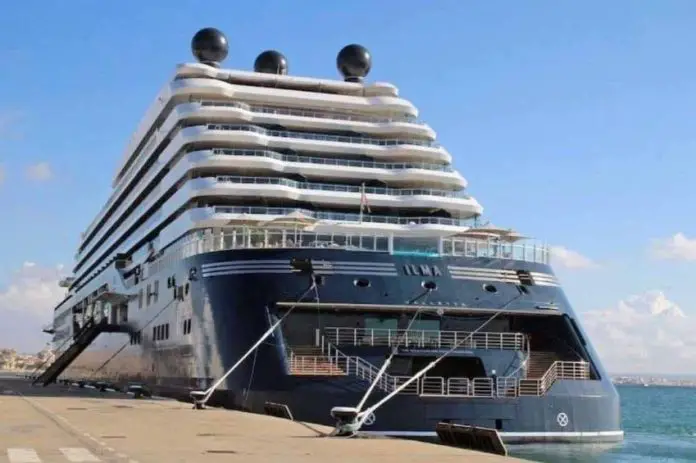Last week, Mexico’s lower house of Congress voted to impose a US $42 immigration fee on every passenger of each cruise ship that docks at one of the country’s ports.
With the bill now in the hands of the Senate, cruise ship lines are pleading with President Claudia Sheinbaum to veto the legislation, should it be approved by the upper house.

The Florida and Caribbean Cruise Association (FCCA), which represents 20 cruise line companies, sent a letter to Sheinbaum over the weekend, notifying her of the group’s opposition to the proposed tax, according to the tourism industry website Reportur.com.
The Mexican Association of Shipping Agents (Amanac) has also voiced opposition to the proposal, according to the magazine Forbes. “If this measure is implemented, it would make Mexican ports among the most expensive in the world, severely affecting their competitiveness with other Caribbean destinations,” it said.
Cruise Radio reported that cruise lines could respond to the hefty fees by skipping Mexican ports of call, a move that could prove to be disastrous for several resorts and locations, such as Cozumel, that are heavily reliant on tourism.
Cozumel receives approximately 5 million cruise passengers annually — roughly 50% of all cruise passengers that arrive in Mexico.

What consequences might the new tax have for Mexico’s cruise tourism industry?
Cruise lines and their destination ports typically work together to decide what taxes and port fees are reasonable, and usually, these are directed to help finance enhancements and updates to port facilities and infrastructure.
Historically, cruise passengers have been exempted from paying immigration fees in Mexico because they are considered “in transit,” and not staying overnight on land.
The FCCA warns that cruise developments in Mexico, such as Royal Caribbean’s Perfect Day Mexico private destination near Costa Maya, and other cruise port investments could be affected by the new tax.
According to the Amanac, 10 million passengers and 3,300 cruise ships are expected to arrive in Mexico throughout 2025.
With reports from Forbes, Cruise Radio, Vanguardia, Reportur and The Street
